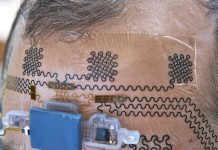
In a new study, researchers found that adolescents and young adults with autism and those with typical development show similar proactive cognitive control.
However, symptoms of depression in people with autism were linked to less proactive control.
The research was conducted by a team at UC Davis.
Cognitive control refers to a set of mental processes that coordinate thoughts and behaviors to fit one’s goals and intentions.
One type of cognitive control is proactive control, characterized by being actively ready and prepared by focusing on goal-relevant information ahead of time.
Proactive control is a very important cognitive function that allows people to plan and prepare how to direct attention. It allows people to follow directions or achieve certain goals without getting distracted.
In this study, the researchers examined whether proactive control is different in adolescents and young adults with autism than in individuals with typical development.
They also studied how repetitive behaviors (a symptom of autism) and psychological disorders (such as depression, anxiety, and ADHD) are related to proactive control.
The study consisted of 88 participants (44 with autism and 44 with typical development) between the ages of 12 and 22.
The study did not find any association between proactive control and repetitive behaviors, anxiety, or attention-deficit/hyperactivity problems in the autism group.
However, participants with autism who had more symptoms of depression showed less ability to implement proactive control.
People with autism experience depression four times more often than their neurotypical peers. One key symptom of depression is rumination, the act of dwelling on negative thoughts.
Rumination may drain or limit the cognitive resources needed to exercise proactive control. This was especially true in mostly incongruent blocks where cognitive resources are needed the most.
The team says this study helps scientists better understand the cognitive strengths and challenges in persons with autism.
It also provides clues on the impact of co-existing conditions such as depression on these persons with autism and thereby aids researchers with treatment development.
One author of the study is Marie Krug, an assistant project scientist in the Solomon Lab at the UC Davis MIND Institute.
The study is published in the Journal of Abnormal Psychology.
Copyright © 2020 Knowridge Science Report. All rights reserved.



